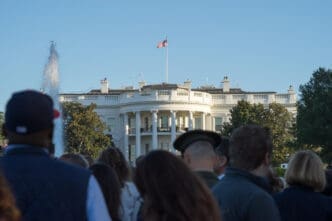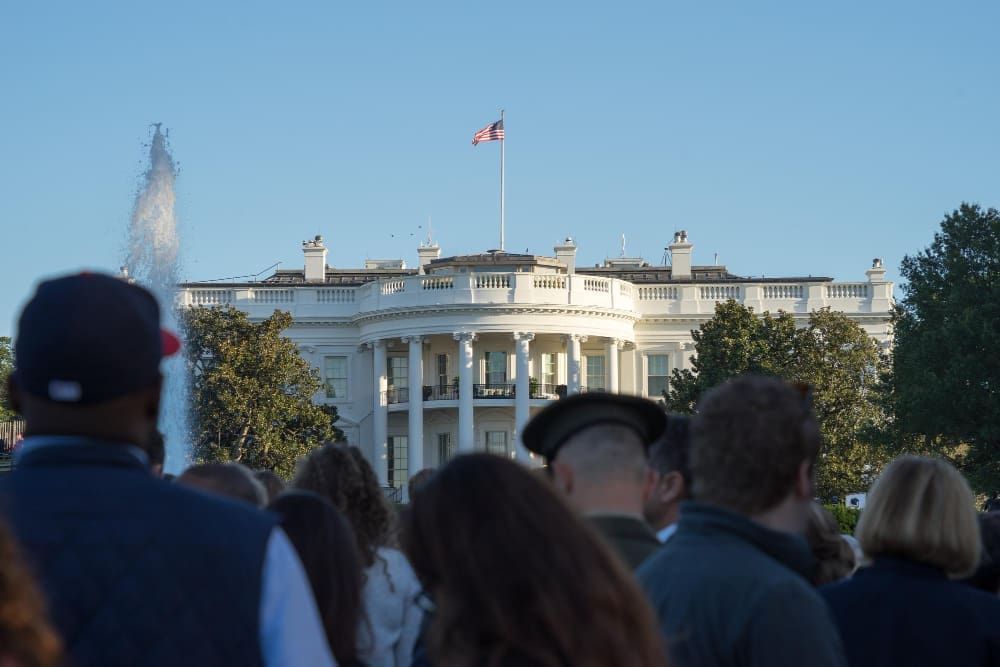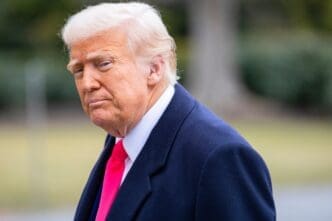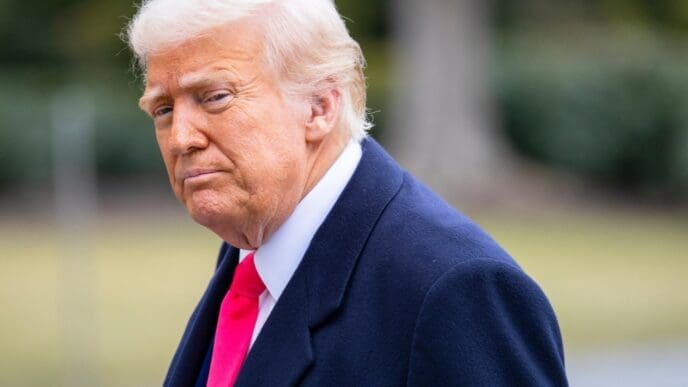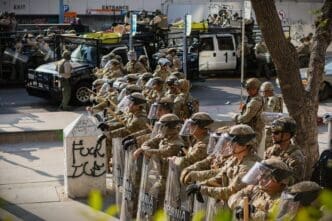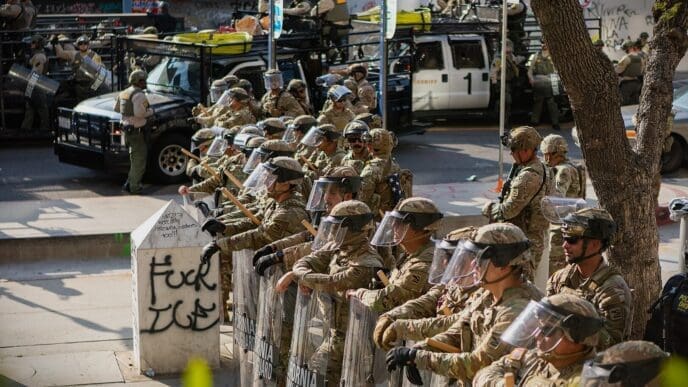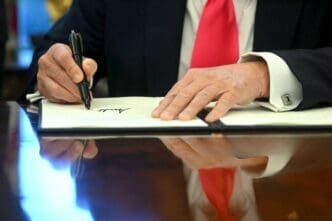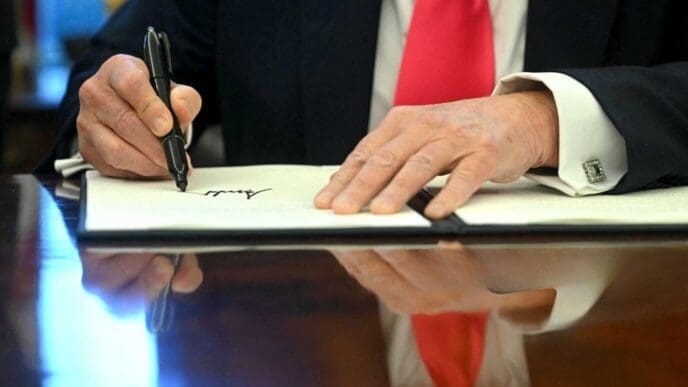KEY POINTS
President Donald Trump’s move to federalize the Washington, D.C., police force and deploy federal officers to combat a spike in crime has ignited a fierce political battle, highlighting a deep-seated struggle within the Democratic party on how to counter his hardline “law and order” rhetoric. While President Trump’s critics assail the move as an authoritarian power grab, the episode has exposed Democratic vulnerabilities on crime and public safety, issues the president has historically exploited to his political advantage.
The crackdown follows a dramatic White House press conference on Monday where President Trump announced his administration would assume control of the city’s Metropolitan Police Department. The action comes as the nation’s capital grapples with a rising homicide rate, which has surpassed 100 victims this year, fueling anxieties among residents.
In response, many Democratic leaders immediately condemned the president’s actions as anti-democratic and a test run for broader authoritarian tactics. They argued the move was more about political posturing for his base than a genuine effort to address the root causes of crime in the city.
However, by focusing primarily on President Trump’s motives, Democrats risk appearing disconnected from voters’ immediate concerns about personal safety. This dynamic echoes previous political cycles where the party struggled to address public anxiety over issues like immigration and inflation, creating an opening for President Trump’s populist and often extreme proposals.
A Familiar Playbook
The challenge for Democrats is not new. The party has long wrestled with crafting a convincing message on crime that bridges the gap between its progressive and moderate wings. The issue often surfaces complex societal and racial themes that are central to the party’s coalition and ideology.
In the 1990s, President Bill Clinton and then-Senator Joe Biden sought to neutralize Republican attacks by championing a crime bill that increased law enforcement funding and implemented tougher sentencing laws. While politically successful in insulating Democrats from being labeled “soft on crime,” the legislation is now widely criticized for contributing to an era of mass incarceration that disproportionately affected Black Americans.
This week’s events demonstrate that Democrats remain susceptible to the classic law-and-order gambit effectively used by past Republican presidents like Richard Nixon and Ronald Reagan. President Trump has ruthlessly deployed this strategy, framing complex issues in stark, simple terms that resonate with a segment of the electorate.
Critiques of the Crackdown
While some Democratic responses may have been politically tenuous, they were often grounded in factual critiques of the president’s record. Rep. Jamie Raskin of Maryland noted the irony of President Trump positioning himself as a champion of law, pointing to the January 6, 2021, assault on the U.S. Capitol, which he argued was incited by the president.
Raskin argued that if President Trump were serious about order, “he would not have pardoned 1,600 insurrectionists and violent cop beaters.” Critics also point to the president’s rhetoric, such as telling police they could “do whatever they hell they want,” as a potential catalyst for more lawlessness, not less.
Furthermore, local officials have warned that recent GOP-led budget cuts of $1 billion to the city will severely impact public services, including schools and the already overstretched police department. This has led to questions about whether the White House has any long-term strategy beyond a temporary and highly visible show of force.
Ultimately, President Trump may have already secured his political objective. The image of military vehicles positioned near the Washington Monument on Wednesday night created a powerful visual of federal control. For residents of the District, however, the move risks prioritizing a political victory over the nuanced, long-term work of building a safer community.

